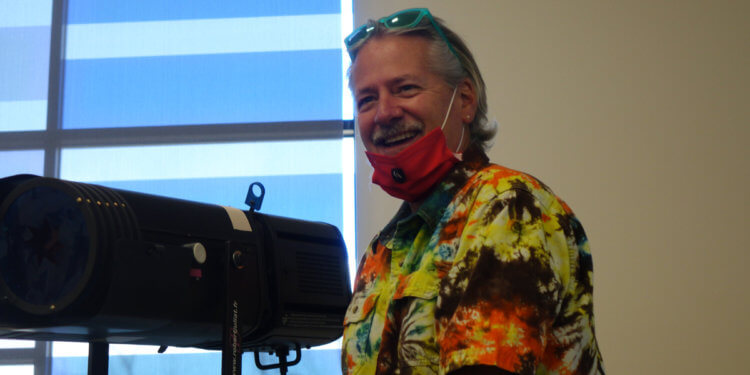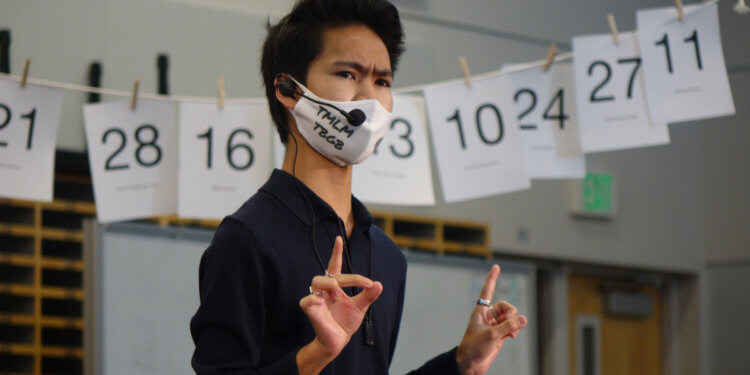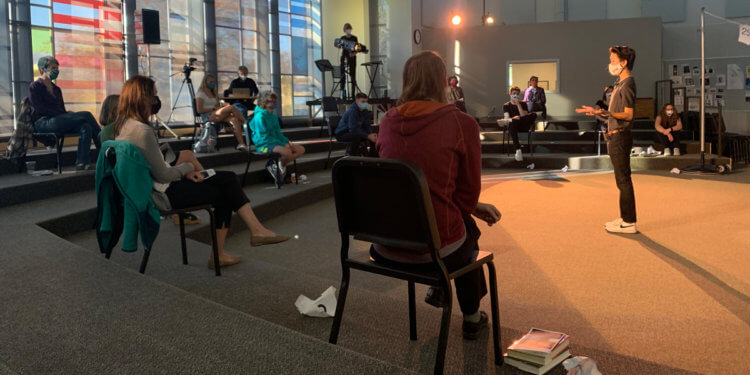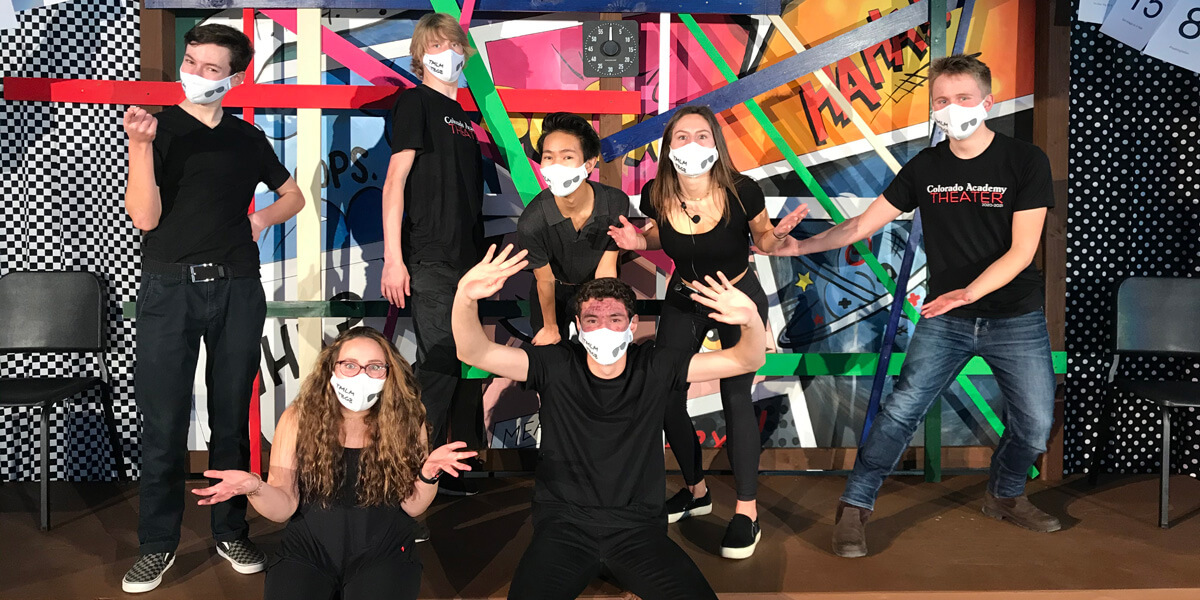If there were a Colorado Academy award for pulling off the seemingly impossible, The Upper School Advanced Acting students, led by their teacher Steve Scherer, would definitely be contenders.
Scherer wanted the students to have the experience of performing on stage—but he had no stage. The Froelicher Theatre was demolished in August to make way for the new Leach Center for the Performing Arts.
The students wanted to act for an audience—but they had no audience. Around the world, performances have been canceled to avoid the danger of audience members spreading COVID-19.
So—no theater, no stage, no audience—but never underestimate the power of determination or the resilience of CA students. They believed the show must go on, despite setbacks, postponements, and a pandemic.
“It would not have been the same if we had done the play online,” says Junior Christian Barnard. “We wanted to achieve an in-person performance, because nothing can compare to that, and we needed it for ourselves and our audience.”
“The CA community needed something funny,” adds Junior Annelise Agelopoulos. “We were determined to laugh, even if we were all six feet apart and wearing masks.”

So what could go wrong?
Scherer chose the play, Too Much Light Makes the Baby Go Blind, with COVID-19 restrictions in mind. The original play is made up of 31 numbered short plays, each with a two-person scene, totaling 60 minutes; CA students did a cut-down version lasting 30 minutes. Think improvisation married to speed dating, with quick, quippy scenes that range from irreverent to poignant. Audience participation is essential to the show. The audience shouts out numbers to choose the scenes and, sometimes, joins the cast onstage.
“I felt like this play would fit well with our circumstances and the COVID-19 safety restrictions in place,” Scherer says. “I wanted to make it happen, but wasn’t completely sure we could.”

Scherer thought he could mount the play safely with performers in masks maintaining social distance in one of the outside tents on the CA campus. But an unseasonably early Labor Day snowstorm meant the tents had to add sidewalls, limiting ventilation. So Scherer and the cast, including Sophomores Naomi Gillis and Andrew Koclanes, Junior Nathan Truong, Barnard, Agelopoulos, and the technical theater crew, including Seniors James Doolittle and Ry Barthels led by teacher James Meehan, pivoted to an alternative location—the Choir Room in Schotters Music Center. Scherer got microphones that would work over the cast’s masks while they were performing, so the audience could hear. But how could they keep the audience safe?
That’s where Director of Visual and Performing Arts Katy Hills and Meehan jumped in to help. They set up a two-day multiple performance schedule, just for students and faculty, limiting the number of people allowed in each audience to remain consistent with social distancing protocol. People signed up, it looked like the show would go on, and then one of the cast members arrived at rehearsal, glanced down at their email, and saw that they now had to quarantine for 14 days, because of an exposure to COVID-19. That pushed the only possible performances to the final two days before Thanksgiving Break. So what could go wrong?
As it turns out, nothing. Meehan wrangled another two-day sign-up for faculty and students to attend. And the cast performed nine 30-minute shows, each with 16 segments, in two days.
“I am tired!” Barnard said on the morning after the second day. “But it was fantastic.”

A little break from reality
For Scherer, who originally planned for a late September performance, the pre-Thanksgiving shows were a classic case of better late than never.
“This show came to represent normalcy to all of us, reaching back to a world that doesn’t exist right now,” he says. “Everyone needs a little break from reality on occasion, and now, more than ever, the escapism provided by theater is needed.”
“I’m surprised how well it worked out, and a lot of that has to do with Mr. Scherer,” adds Barnard. “It was incredible how flexible and understanding he was, always adapting to the new schedule.”
Consistent with the holiday, Agelopoulos was filled with thanks for everyone who helped, including Scherer (“The show turned out the way it did because of him.”), Hills, Meehan, and Head of School Dr. Mike Davis, who allowed the students to attempt what most theater companies have abandoned—a live performance.
She also wanted to thank all the teachers who supported students when they had to miss two days of classes to perform. “I received so many heartfelt emails from the faculty who attended the play,” she says. “It’s such a reflection of the CA community and their support of students’ involvement in the arts.”
Agelopoulos admits that, in the back of her mind, she always had a fear that the play would never happen, and all their hard work would be for naught. But she tried to stay optimistic throughout all the setbacks, and she found that having a project and a goal provided a “wonderful distraction.”
“COVID can be so overwhelming, so it was nice just to get together with my peers and act,” she says. “It was as close to normal as it could be, and I couldn’t ask for anything more.”
